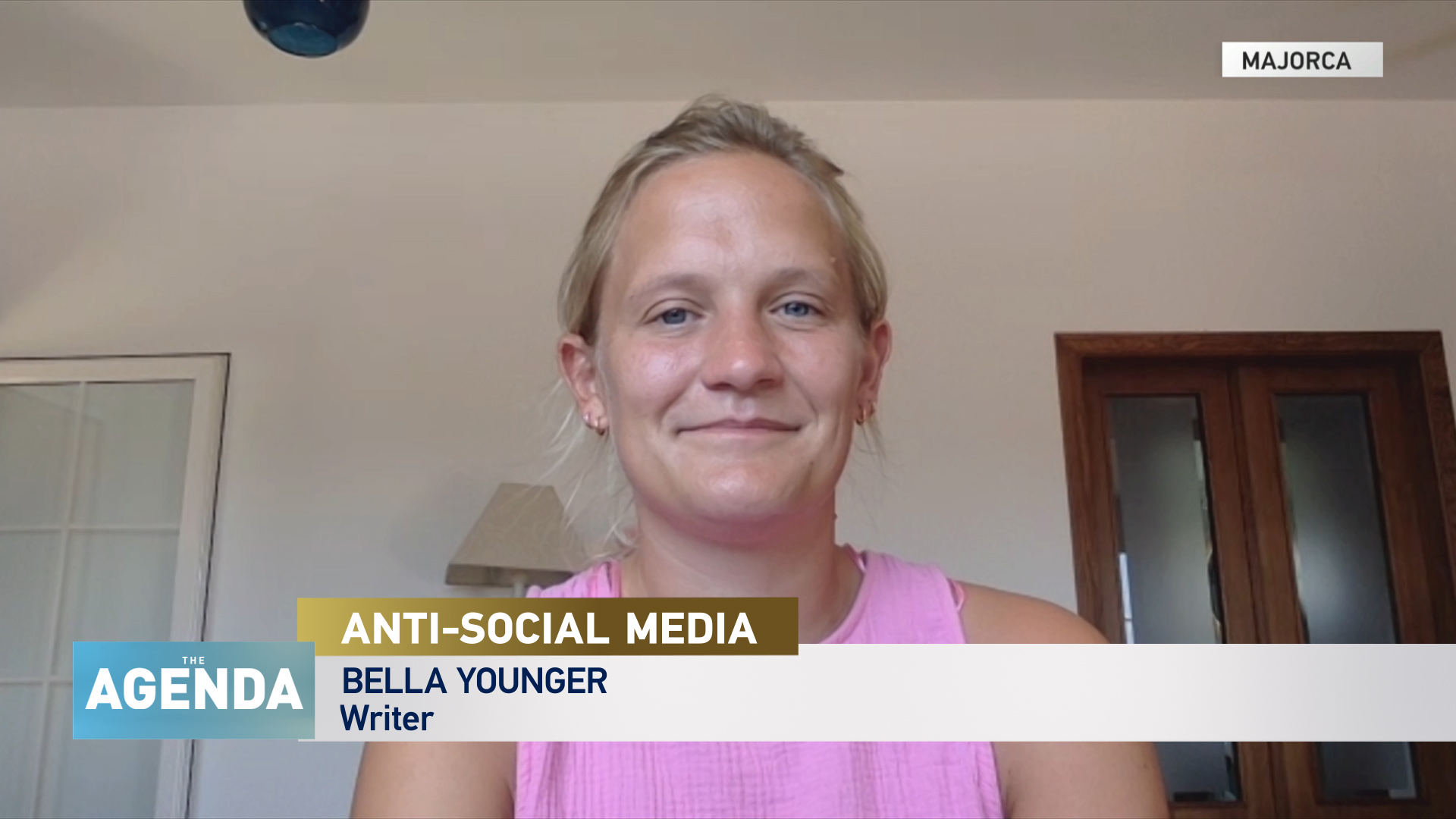05:35

WHAT'S THE ISSUE?
Instagram is a hugely popular social media platform, with more than 1.1 billion active monthly users. About a third of that audience is aged between 25 and 34.
While people were confined to their houses during lockdown, social media seemed like a good way to stay in touch. But instead, many reported feelings of 'missing out' as they saw other people seeming to have a more enjoyable and productive time in lockdown.
Despite this discomfort, many people find it hard to put down or avoid social media. Why? How does the algorithm influence your experience? And is it possible to get addicted?
Stephen Cole speaks to Bella Younger, a writer and influencer with a long and difficult relationship with social media - especially Instagram.

MEET THE EXPERT
Bella Younger became an 'accidental influencer' when her parody wellness account 'Deliciously Stella' suddenly gained an enormous following on Instagram.
By 2016 she had 750,000 followers, a blue tick and started receiving gifts from sponsors. But all was not well. Younger's success started to take its toll and she ultimately realized she had become addicted to Instagram.
Younger has since written a book 'The Accidental Influencer: How My Need to Get Likes Nearly Ruined My Life' and hosted a podcast about her experiences.

WHAT DOES YOUNGER SAY?
"The question isn't when was I looking at my phone," she explains, "it's - when was I not looking at my phone?"
Younger says it was nearly impossible for her to put her phone down when she was at the height of her addiction and it eventually got so bad that she was admitted to a rehab clinic.
"My doctors at the clinic had never really seen anything like it," she says "they weren't aware that social media could be addictive in the same way as alcohol or drugs."
Younger believes that big tech companies know that their platforms are addictive and they are intentionally designed that way.
"The more dopamine that they're giving out through likes and followers validation, the more time people will spend on their sites."


WHAT'S NEXT?
For Younger, the future is about protecting young people who are more easily swayed by the success metrics of social media.
"Going forward I think we should remove the 'like' and 'follow' buttons for at least under-18s," Younger explains. "We can't get rid of these buttons completely but we need to be a lot more open and give people tools to use social media safely."
She also hopes that writing this book will encourage other people to be more honest about their experiences with social media.
"I hope that by sharing the truth of what happened, people will understand that it isn't all fun and games and it's got quite a dark underbelly."

ALSO ON THE AGENDA:
Also in the show is Professor Yvonne Kelly, the Director of the ESRC International Center for Life Course Studies at UCL. She explains how her study concluded that 14-year-old girls were twice as likely to show depressive symptoms linked to social media use compared with boys of the same age.
Plus - should mobile phones be banned in bedrooms or even schools? Stephen Cole speaks to cyber bullying campaigner Charley Oliver-Holland about her experiences online and how to silence the trolls.
Finally, are there long-term consequences of harmful online behavior? And how has online aggression changed in the last decade? Dr Maša Popovac - a psychologist who specializes in Cyber-psychology explains the evolution of trolling.

